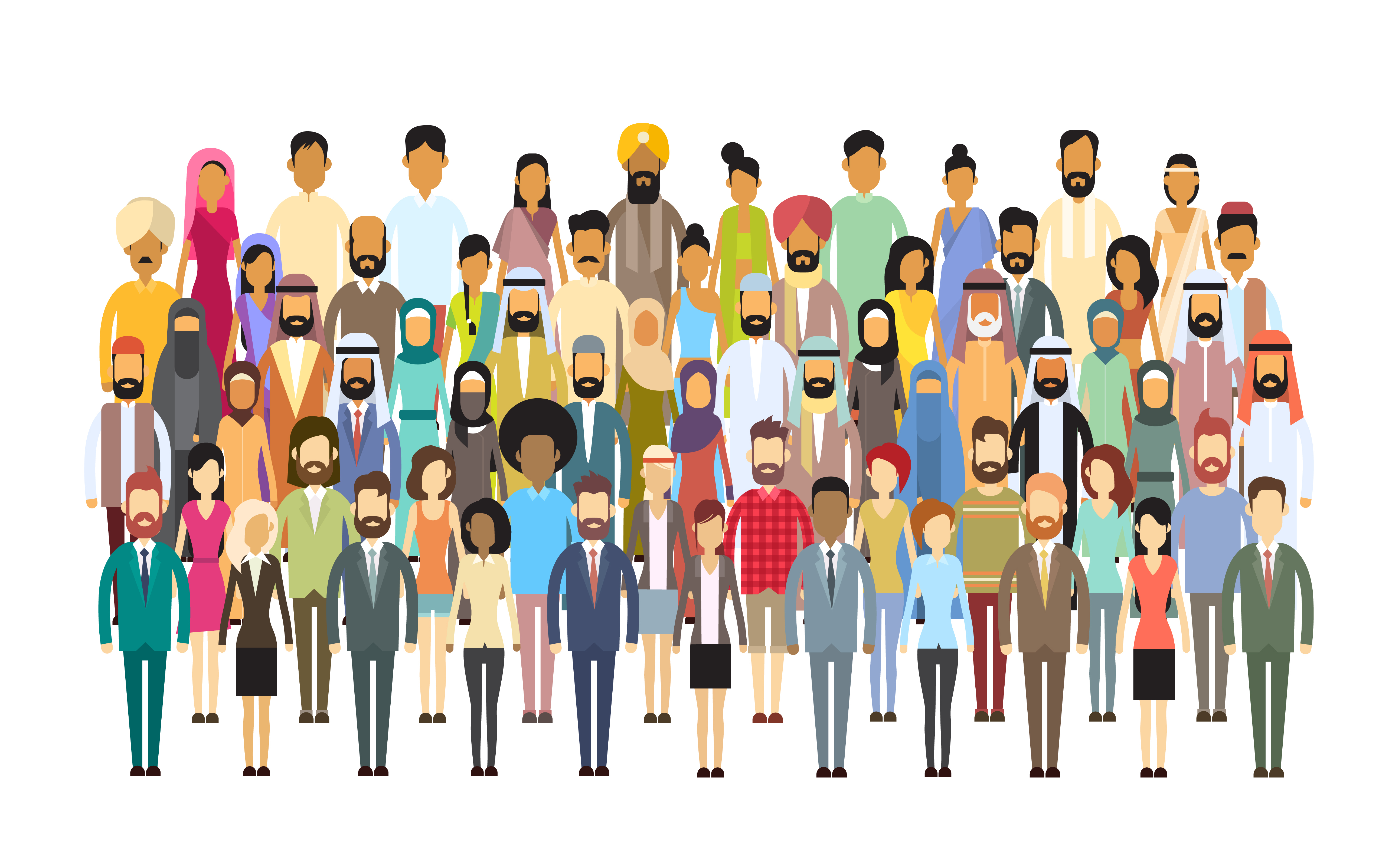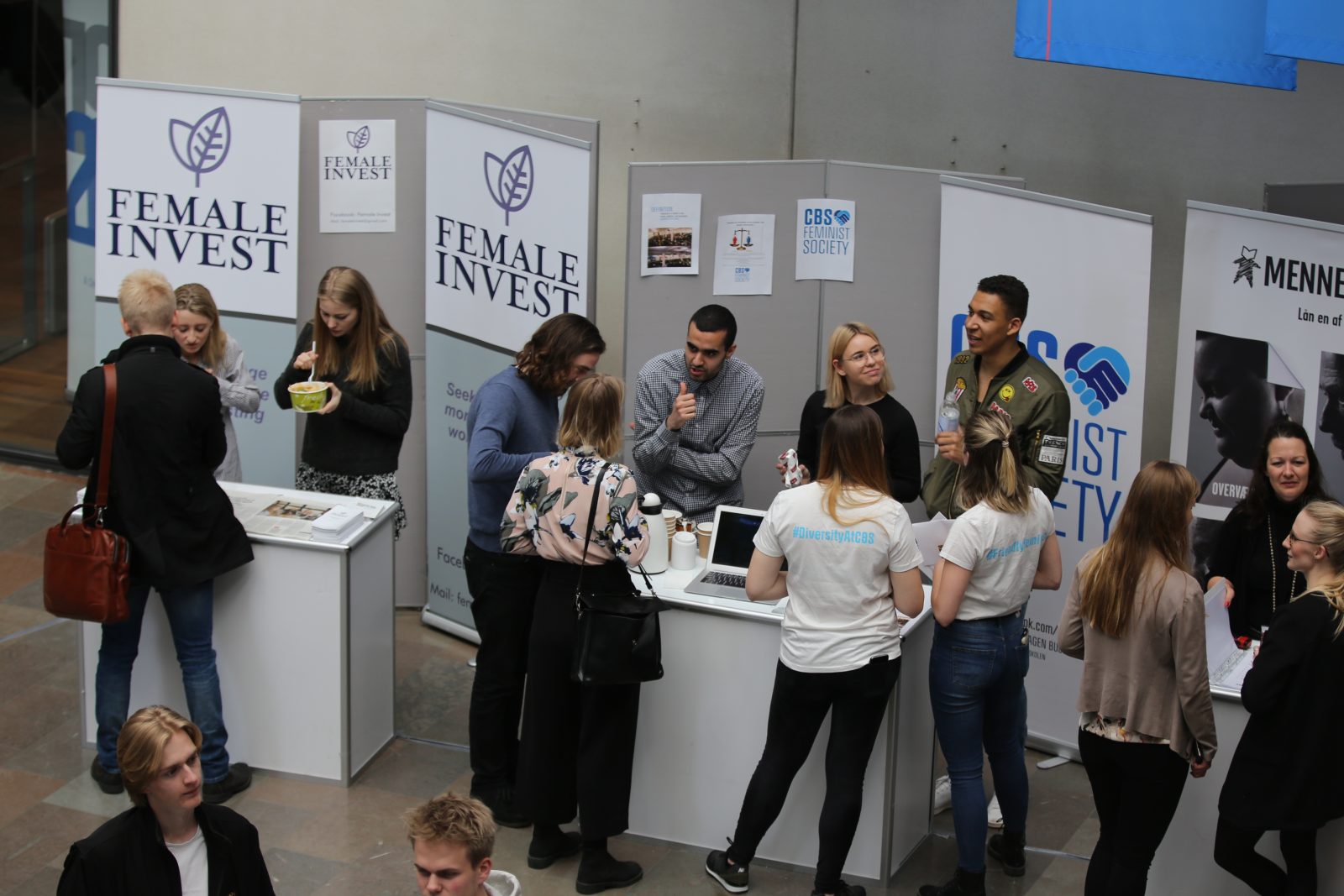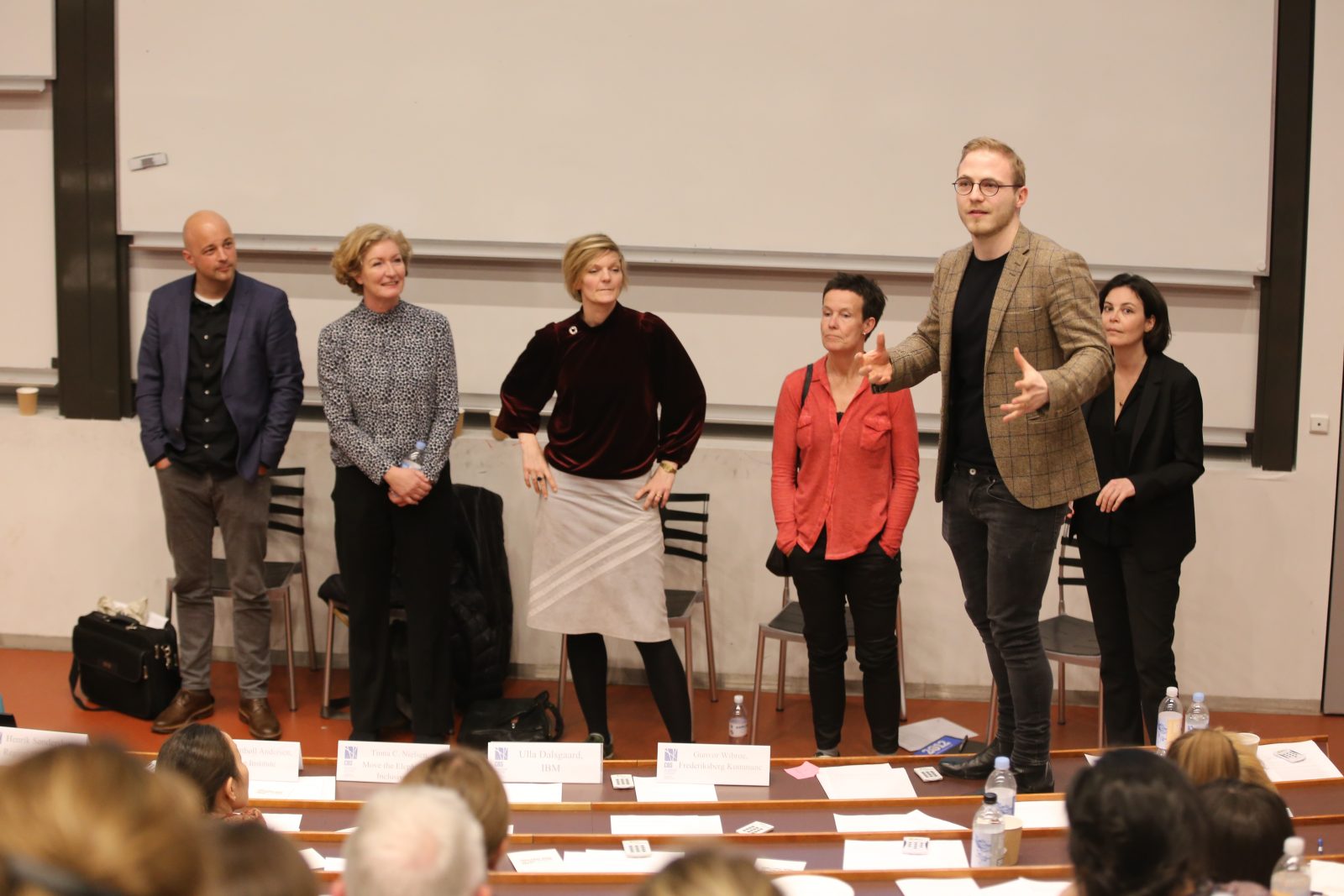The odd one out

A more critical focus on diversity at the universities and other workplaces is needed, if we want to break with the gender norms and stereotypes that can lead to excluding work practices, argues Ph.D Fellow Jannick Friis Christensen from CBS.
This Saturday CBS is taking part in the Copenhagen Pride Parade for the first time, celebrating diversity in all its forms and colors.
“Diversity is indeed needed,” explains Jannick Friis Christensen, Ph.D Fellow at the Department of Organization. Not just the celebratory part, but also knowledge about experiences of oppression and discrimination that is the other side of the coin. He has recently begun his Ph.D. focusing on these issues of diversity, inclusion and (in)equality at Danish workplaces.
“Taking gender diversity as an example, one problem lies in the matter that men and women, in some instances, are found to be evaluated differently for acting in the same behavior,” says Jannick Friis Christensen when asked about why CBS is having a gender diversity problem.
President Per Holten-Andersen has on several occasions pointed out that CBS is worst in class, in terms of gender balance compared to other Danish universities, and especially so at the professor level.
“One issue that gender diversity has in common with other focal points such as sexual orientation and ethnicity is one of underrepresentation,” he informs and adds:
“It has something to do with you being assigned a minority status – or getting minorized. The notion of being the odd one out, when you enter the meeting room and finding yourself to be the only woman there.”
Things are easier when you fit the norm
Jannick Friis Christensen continues to explain how representation plays a vital role in regards to the norms surrounding certain job positions and managerial and organizational structures in general. When we believe something to be normal, it’s because we see it plentiful represented and that is why minorities can have, in comparison, harder time.

“When you are seen as part of a minority, you suddenly become very visible in the crowd. This puts you under pressure since you suddenly have to deal with certain issues that you otherwise didn’t need to be concerned about,” says Jannick Friish Christensen and continues:
“When you achieve something it is noticed and likewise if you fail. You’re not necessarily seen as an individual, but come to represent a whole group of diverse people, and others are likely to judge that group according to your actions. Needless to say, this will affect not only you but also the ones coming after you.”
Prejudice
The dilemma of under representation could have something to do with the gendered aspects of management. Referring to several studies that show a perceived incongruity between the traditional gender role for women and the leadership role.
Jannick Friis Christensen believes this is a potential source of prejudice.
“This is a potential prejudice against female leaders to dissimilar beliefs about management and women. While women are often ascribed with welfare attributes, men are generally characterized as assertive and controlling, which are kind of masculine notions and metaphors typically used to describe leadership.”
Men and women, in some instances, are found to be evaluated differently for acting the same behavior
He emphasizes that from a critical standpoint, leadership, although assumed neutral, is a gendered discipline that values certain norms and hences priviliges people performing or embodying these norms:
“The role incongruence, therefore, may lead to women being evaluated less favorably, even if enacting the leader role with the prescribed behavior,” he says.
Change starts at the universities
So how can we change this?
According to Jannick Friis Christensen, a good place to start would be our management programs, because these are where current ideals and practices are being taught and reproduced in the shaping of tormorrow’s leaders and managers.
“We need to open up to new and alternative ideas of what good leadership is, so that both men and women alike can draw on the full spectrum of gendered competencies,” says Jannick Friis Christensen and goes on to say that for this to happen, diversity is imperative.
Diversity a bit by bit
One thing that is being done to try and shake things up is the now annual Diversity Day at CBS, which Jannick and Associate Professor Sara Louise Muhr, from the same department, are the brains of. Held back in April, the intention of this year’s event was to devote an entire day for workshops and lectures on how to mainstream more diverse thinking at schools, in companies, and other organizations.

Drawing on more unconventional teaching methods and cases, they have both had a lot of success in getting the attention of students and attendants at the event to stop and reflect about gender norms surrounding education, leadership, and work life in general.
To illustrate the complexities of gendered expectations to management practices, Jannick Friis Christensen once invited a guest lecturer to share her many years of experience as a manager.
“As a transwoman, and having occupied the same position within the same management responsibilities before, during and after transitioning, she has experienced first-hand how some co-workers approach you differently depending on whether they see you as a man or a woman,” he says and continues:
“Suddenly, when being as assertive as usual when voicing her opinion, some employees would let her know that she was not particularly feminine that day – something she had never been commented to about before.”
When we, in this way, are confronted with people of different gender identities, ethnicities, and sexual orientations, in roles that we aren’t used to seeing them in, our basic assumptions might be challenged, Jannick Friis Christensen concludes.
So diverse representation is important. Not only from the perspective of fairness or social justice but also if we mean business when talking about innovation, entrepreneurship, and wanting the best candidates.
































































































































Comments